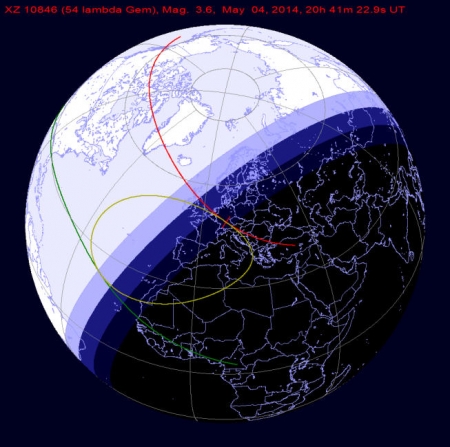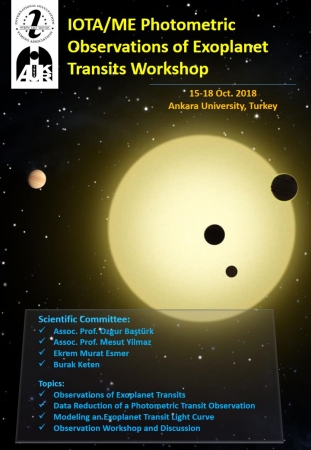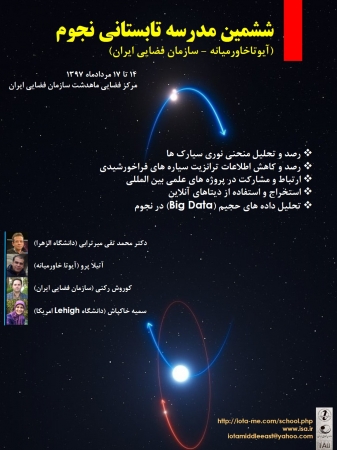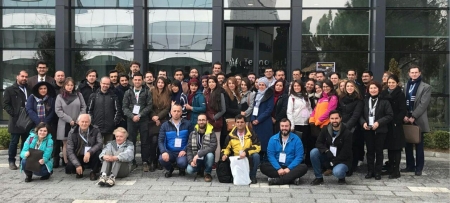New version of GRAZPREP (4.20)
2018/09/18 22:28
Dear all,
I just uploaded a fully revised version of GRAZPREP (now 4.20) to be downloaded from (www.grazprep.com) . The major change is the implementation of all Gaia DR2 stars yielding Gaia proper motions, parallax and radial velocity. These are now 98% of all zodical stars of the former XZ80Q catalogue! Even some of the brightest stars have Gaia positions now: the brighest being delta Sagittarii with a visual magnitude of 2.7. For some brighter stars we still have to rely on the Hipparcos-positions. Note that the measuring array of Gaia has problems with bright stars. This might affect stars brighter than 7 mag. where the center of light is harder to define. The irradiation factor inreases with brightness. But still there are improvements to former catalogues.
On www.grazprep.com you will also find revised 2018 grazing occultation prediction files for the rest of the year that need to be downloaded as well (at least the one matching your area). The limitimg magnitude is 9.3 (13.0 for the lunar eclipses). A prediction file of grazes during the upcoming lunar eclipse of Jan. 21, 2019, is also available.
Before installing the new version UNINSTALL any former version you have! You will find an Unins000.EXE in the GRAZPREP-folder. Former prediction files and your setting data will NOT and must not be deleted.
The password for the installation is 'IOTA/ES' as before. During installation be sure NOT to use the Windows-program folder offered as a default, but select your self created GRAZPREP-folder and install GRAZPREP there.
Please report any difficulty you might have to me for a quick support from my side whereever possible.
Clear skies to all and hopefully many successful occultations!
Kind regards,
Eberhard Riedel
Read More...
IOTA/ME Photometric Observations of Exoplanet Transits Workshop
2018/09/18 20:31
15-18Oct. 2018
Ankara University, Turkey
Scientific Committee:
Assoc. Prof. Ozgur Baştürk
Assoc. Prof. Mesut Yilmaz
Ekrem Murat Esmer
Burak Keten
Topics:
Observations of Exoplanet Transits
Data Reduction of a Photometric Transit Observation
Modeling an Exoplanet Transit Light Curve
Observation Workshop and Discussion
Read More...
8th International Workshop on Occultation and Eclipse was held
2018/03/06 19:00
Workshop website: http://iota-me.com/oe.php
Read More...
8th International Workshop on Occultation and Eclipse will be held in Istanbul, Turkey
2017/11/15 22:58
The following sessions will be held during the workshop:
✔️ Session: Occultation, Moon, Calendars
✔️ Session: Trans-Neptunian Objects, Asteroids, Comets
✔️ Session: Exoplanets, Planetary Science, Variable Stars
✔️ Session: Observation process, Spectroscopy
✔️ Session+: High Energy Astrophysics, Astrobiology
Workshop website: http://iota-me.com/oe.php
Contact email address: info@iota-me.com
Read More...
Presentation a lecture and three posters in the Eight Moscow international Solar System Symposium (8M-S3)
2017/10/23 01:18
The Eight Moscow international Solar System Symposium (8M-S3) was held from October 9 till 13, 2017. A team of five people from IOTA/ME participated in this meeting. One oral and three posters were presented by this team.
The oral presentation was "The effect of unknown parameters of exoplanets on their habitability" by Seyed Javad Jafarzedeh with Majid Bahrami and Fatemeh Montazeri.
The first poster was "Pole of rotation and spin rate of different asteroids" by Atila Poro and Fatemeh Montazeri.
The second poster was "The study of the bacterial life on similar conditions of Europa, in the laboratory" by Mohammad Sadegh Gheibzadeh.
And the third poster was "A study on occultation and timing methods" by Zeinab Sadat Lesani.
Read More...







